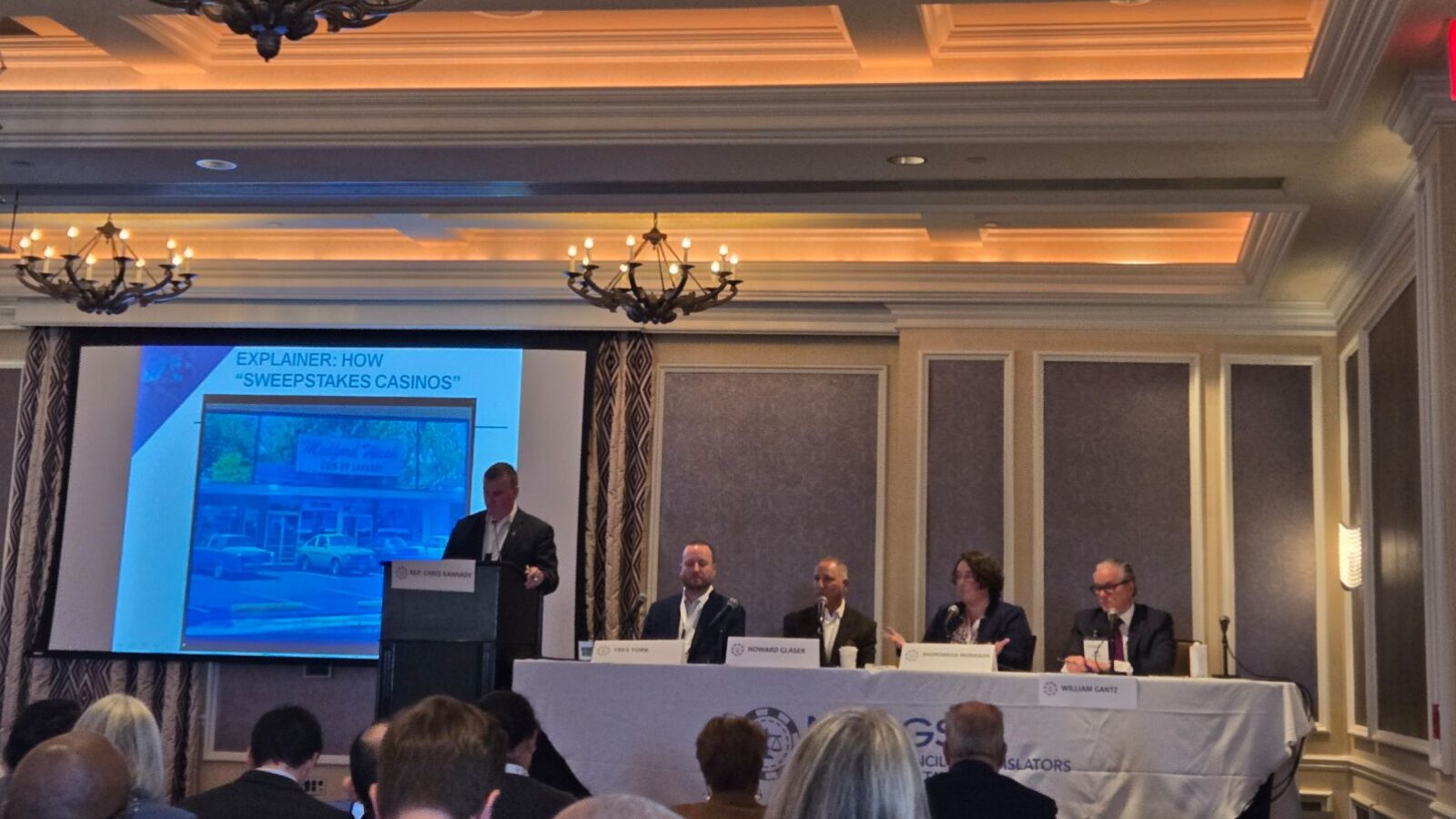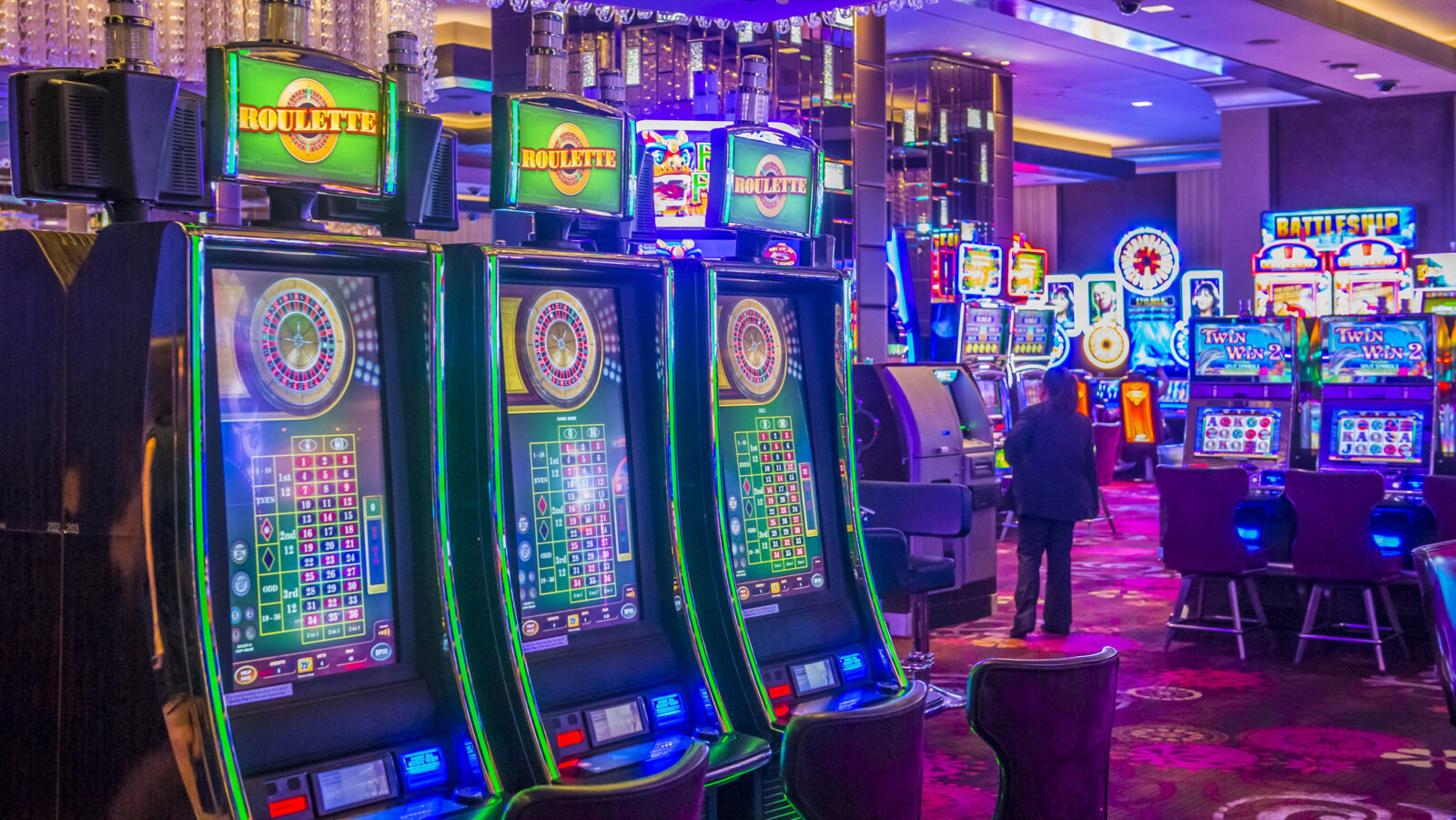As It Has Elsewhere, Sweepstakes Proves Highly Contentious Topic At NCLGS Conference
Panel titled ‘This Ain’t Your Granddad’s Sweepstakes’ delved into issues on licensing, regulation, and taxation
5 min

More than 15 years have elapsed since the passing of Ed McMahon, the Tonight Show sidekick also famous for sweepstakes commercials that featured him awarding unsuspecting Americans with gigantic seven-figure checks.
Yet McMahon’s name circulated through the halls of Harrah’s Hotel at Caesars New Orleans on Friday before the nation’s preeminent gambling regulators.
Ahead of next week’s Senate hearing in the nation’s capital on sports betting, a panel convened on the online sweepstakes casino market, one that is sweeping the broader industry. The panel, entitled “This Ain’t Your Granddad’s Sweepstakes,” delved into hot-button issues on licensing, regulation, and taxation associated with the multi-billion-dollar market.
The panel opened the daily agenda at the National Council of Legislators From Gaming States (NCLGS) 2024 Winter Meeting. Moderated by Chris Kannady, a state representative from Oklahoma, the panelists debated the topic before a packed audience inside the Vieux Carre ballroom. Typically, conferences such as NCLGS save the best panels for last, Kannady proclaimed. In his introductory remarks, the former Marine promised that the session would be the most superlative of the weekend. At a minimum, the lively hour-long panel brought considerable fireworks, underscoring the contentious nature of the topic.
Aside from the strict definition of gambling, at issue is whether a state has the statutory or regulatory authority in prescribing the manner in which a sweepstakes contest may be conducted. Andromeda Morrison, general counsel, Ohio Casino Control Commission (OCCC), sought to provide a roadmap for the audience on how states may proceed.
“For the regulators in the room, this is a very challenging topic,” Morrison said. “For the legislators in the room, use your regulators as resources. … We want to make sure everyone who is in Ohio is doing so legally and in a corporate, responsible way.”
A dual-currency model
For those unfamiliar with sweepstakes operators, the model is predicated on a dual-currency apparatus. There is a major distinction between a “virtual coin,” which can be obtained free of charge and “virtual cash,” another currency on the platforms. While users may receive hundreds of coins each week, only the latter is redeemable for real money.
The sweepstakes model has become increasingly prevalent across a wide variety of online gaming contests. Virtual Gaming World (VGW), an online sweepstakes casino and poker operator, has been ordered by multiple states to cease offering its services. Another operator, Kickr Games, provides options ranging from video slots to scratch games, as well as blackjack and stud poker.
On the sportsbook side, Fliff has steadily grown in popularity after raising $15 million two years ago in Series B funding.
All three are members of the Social and Promotional Gaming Association (SPGA), an alliance that is dedicated to providing regulators, policymakers, and consumers with a comprehensive understanding of the offerings. Amid heightened scrutiny of the sweepstakes industry, the association formed in September in part to fend off a series of attacks from regulated operators.
As with Fliff, the model constructed by other sweepstakes sportsbooks can be characterized in some respects as fresh and innovative. Last spring, a day before March Madness, a pair of Dartmouth students launched Rebet, a site that dubbed itself as the first free-to-play social sportsbook. The students hatched the idea through Dartmouth’s startup incubator, a project founded by the school’s Tuck’s Center For Entrepreneurship.
ProphetX, a Fliff competitor, also received mention during Friday’s panel. Howard Glaser, head of government affairs and legislative counsel at Light & Wonder, posted a Fliff slide on the dual-currency model in his brief remarks. The slide contained a large headline, “How To Win Real Money,” above instructions on how to toggle to the Prophet Cash mode, purchase Prophet Points, receive Prophet Cash as a bonus, and play through the cash mode to redeem real money. The image sat below two lines that read:
To Regulators: Not Gambling
To Players: How To Win Real Money
A subsequent slide contained several payment options, including methods that enable users to fund Prophet Cash with Mastercard and Visa debit cards. A draft for model iGaming legislation from NCLGS contains a provision that outlaws regulated gambling site from partnering with credit card providers for account funding.
Financial implications
At a separate panel Thursday on regulatory challenges in the gambling industry, panelists were asked to opine on the long-term implications for casino valuations if sweepstakes companies continue to operate unlicensed. Steve Croxton, managing director at Rice, Voelker, LLC, a New Orleans-based registered broker-dealer, did not mince words when addressing the subject.
As sweepstakes operators remain untaxed, financial performance from some casinos has been negatively impacted, Croxton said. He pointed to the valuation of an unnamed single property that has dipped of late in the current sweepstakes environment. There are indications that the diminished valuation has ostensibly affected the property’s sale prospects to a Real Estate Investment Trust (REIT).
Prior to the conference, a leading Wall Street analyst released updated projections on the growth of the sweepstakes industry. For 2025, U.S. real-money, social/sweepstakes operators are poised to generate revenue of at least $2.1 billion, according to Macquarie analyst Chad Beynon. The figure is exponentially higher than the $1.3 billion in projected revenue this year. By comparison, the figure was below $140 million in 2019.
A legal framework
Eventually, ProphetX hopes to expand into the nation’s most populous states, including California and Texas, which do not offer legal sports betting at the moment. For now, ProphetX officials are opting to allow the market to develop before making its offerings available in Ohio.
An overarching concern among regulators centers around wagering access for underaged consumers. Morrison shared an anecdote of a call made to the OCCC by a group of concerned parents. The parents informed the commission of a group of 15-20 high school students that formed a club based on sweepstakes-style sports betting. She did not indicate if the club used a third-party website for tracking the wagers, but noted that their access would otherwise be prohibited on a regulated site.
This week’s panel came several months after the American Gaming Association sent a memo to regulators, urging state attorneys general to investigate companies or platforms that offer casino games or a form of sports betting through the sweepstakes model. The AGA further advised regulators to determine if operators are in “compliance with their respective laws and regulations” and to take appropriate action.
According to the SPGA, social and promotional games are innovative entertainment gaming platforms that allow participants to enjoy the excitement of gaming and the chance to win various rewards. At Friday’s panel, Tres York of the AGA drew comparison between the online gaming sweepstakes and hamburger promotions offered at McDonald’s. While York described the latter as temporary offerings accompanied with a fixed reward, he took exception with the ubiquity of sweepstakes games that are available on a 24/7 basis. York serves as senior director of government affairs at the AGA.
When the Senate Judiciary Committee holds a hearing next week on federal oversight in sports betting, it could be a stretch for sweepstakes to enter into the conversation. But it’s not impossible, given that operators like Fliff bring the two verticals together.
Bill Gantz, an attorney who represents a number of companies in the sweepstakes industry, conceded that most of the audience at NCLGS probably maintain an opposing view to his on sweepstakes companies. Gantz described the topic as incredibly complex, while adding that there are methods at the disposal of state gaming officials in assessing unregulated gaming.
“If you want to regulate or prohibit, then you should change the law and change the regulations,” he said.




